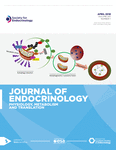Hormonal alterations in PCOS and its influence on bone metabolism
- Correspondence should be addressed to S Muthusami; Email: sridharuniv{at}gmail.com or sridhar.m{at}kahedu.edu.in
Abstract
According to the World Health Organization (WHO) polycystic ovary syndrome (PCOS) occurs in 4–8% of women worldwide. The prevalence of PCOS in Indian adolescents is 12.2% according to the Indian Council of Medical Research (ICMR). The National Institute of Health has documented that it affects approximately 5 million women of reproductive age in the United States. Hormonal imbalance is the characteristic of many women with polycystic ovarian syndrome (PCOS). The influence of various endocrine changes in PCOS women and their relevance to bone remains to be documented. Hormones, which include gonadotrophin-releasing hormone (GnRH), insulin, the leutinizing/follicle-stimulating hormone (LH/FSH) ratio, androgens, estrogens, growth hormones (GH), cortisol, parathyroid hormone (PTH) and calcitonin are disturbed in PCOS women. These hormones influence bone metabolism in human subjects directly as well as indirectly. The imbalance in these hormones results in increased prevalence of osteoporosis in PCOS women. Limited evidence suggests that the drugs taken during the treatment of PCOS increase the risk of bone fracture in PCOS patients through endocrine disruption. This review is aimed at the identification of the relationship between bone mineral density and hormonal changes in PCOS subjects and identifies potential areas to study bone-related disorders in PCOS women.
- Received 24 October 2016
- Accepted 28 November 2016
- Made available online as an Accepted Preprint 28 November 2016
- © 2017 Society for Endocrinology











